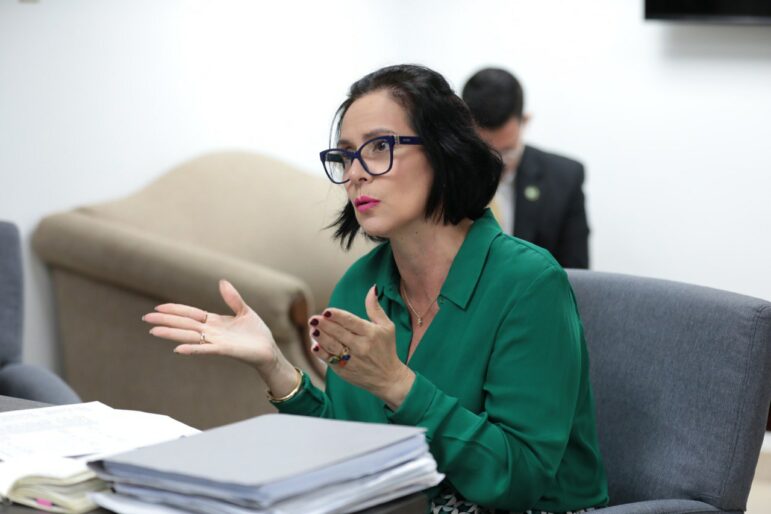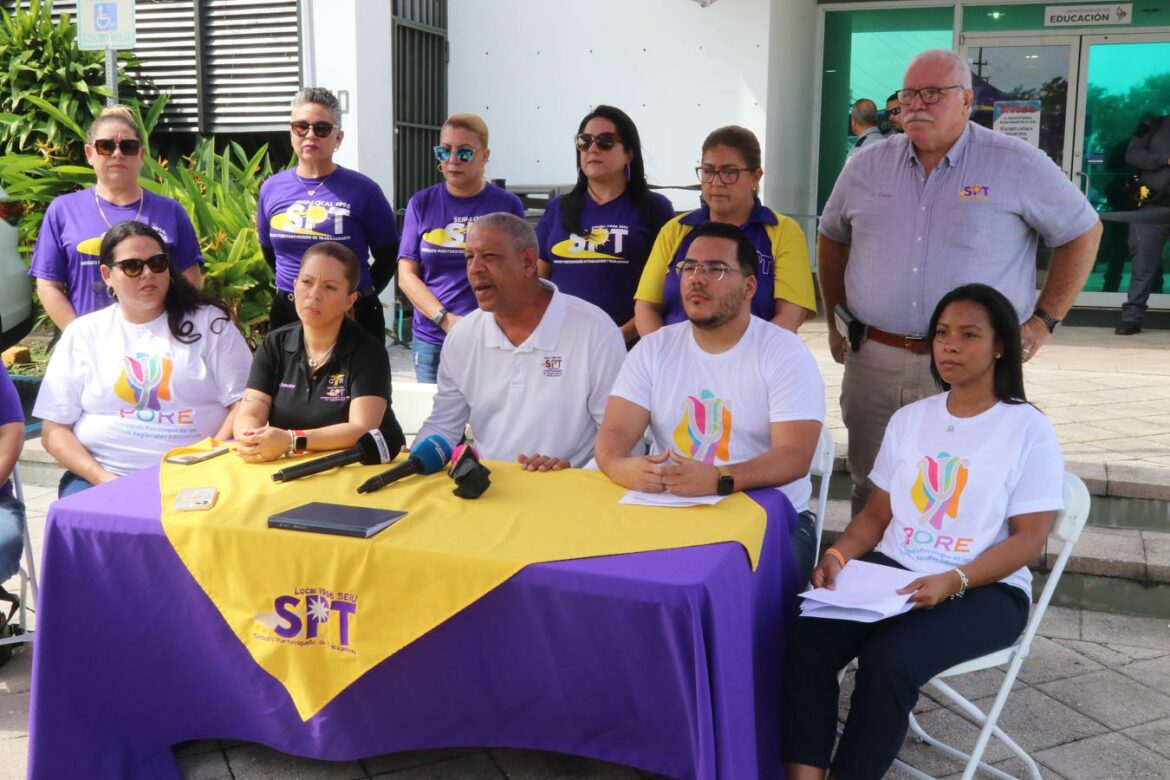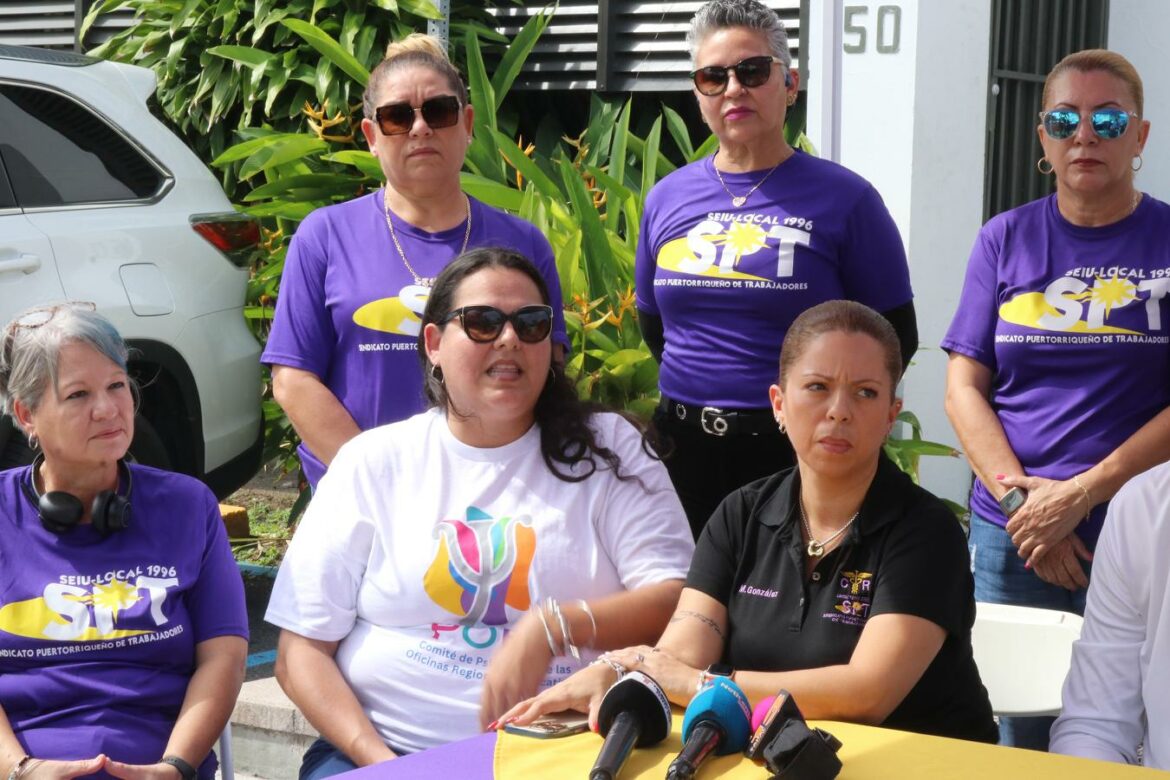Elisaul Cruz, father of a seven-year-old boy, was seeking a meeting with the school psychologist at his son’s school when he was notified by the school’s management that the campus does not have this service .
Cruz said that after personal circumstances, he noticed how his son adopted attitudes that began to harm him academically and constantly received notices from the child’s homeroom teacher. Faced with this situation, he sought help from the school psychologist and there he learned that this school is one of the 16 with vacant positions in the Regional Educational Office (ORE in Spanish) of Humacao. In total 85 schools in Puerto Rico lack the service of these professionals.
“The biggest challenge has been that due to our personal situation we cannot afford a private pediatric psychologist,” Cruz said.
Currently, the minor does not have the help of the school’s interdisciplinary socio-emotional team and his parents continue to search for a plan that can benefit their son in his emotional health and academic development.
Despite a circular letter signed in 2022 directing the Department of Education (DE) to fill school psychologist vacancies, 10% of these positions are still vacant. Furthermore, this Monday, the Puerto Rican Workers’ Union (SPT/SEIU) claimed that the agency has hundreds of school psychologists in terrible working conditions and with an excessive workload.
Circular letter No. 022-2021-2022, signed by the former Education Secretary Eliezer Ramos Parés, defined the positions and responsibilities of school psychologists in Puerto Rico’s public schools. The government had the responsibility to do this since 2000, according to Act 170, but its provisions were never executed due to the alleged lack of funds and the change in government administrations, said Karen García, supervisor of the School Psychology Program from the Humacao district.
In 2020, the Fiscal Control Board approved the hiring of one school psychologist per school, something that was already public policy according to the educational reform, Act 85, approved in 2018.
However, the Department of Education continues to fail to comply with the law, since according to data provided by the agency, 85 of 844 psychologists have yet to be appointed. The district with the most vacancies is Humacao, with 16, followed by Bayamón, with 15, and Caguas and Mayagüez, with 13. In Ponce there is a shortfall of 12 psychologists, 11 are needed in Arecibo, and five are needed in San Juan.
García said it is not easy to recruit psychologists trained in education, which is why she was compelled to allow in her recruitment call for the position of psychologists trained in different specialties. The DE’s data shows there are currently 759 named school psychologists who graduated in educational psychology, psychological counseling, or clinical psychology.
“We have been put in the position of clarifying that not all psychologists who are in schools are school psychologists,” Patricia Landers Santiago, president of the Puerto Rico Psychology Association and Puerto Rico delegate for the National Association of School Psychologists (NASP), told the Center for Investigative Journalism (CPI, in Spanish).
She explained that the educational foundations are the same, but the school psychologist receives training and preparation in the teaching and learning process that other branches of psychology do not necessarily have.
Landers Santiago expressed “confidence” in the DE’s efforts to formalize spaces for school psychologists. The Puerto Rico School Psychology Association (APPR, in Spanish) has been monitoring the needs of the students and has kept up a direct relationship with the agency, said Landers Santiago. Despite this, she recalls the 20 years of struggle it took to get a space in Puerto Rico’s schools.

Photo taken from the Department of Education’s X page
According to the NASP delegate, in many schools the circular letter that defines the role of school psychologists is not followed exactly because the diagnostic process is not carried out, which is one of the obligations of the school psychologist. During her evaluation process of school psychologists who practice on school campuses, Landers Santiago has been able to confirm how many of them say they don’t know what their duties are or cannot even evaluate students because the DE has not provided the necessary tests to diagnose students.
“If what the circular letter says is not being complied with, then there’s a clear violation,” said Landers Santiago. “We’re still in the process of adaptation, and making the most of it,” she said.
Staff of psychologists decry working conditions
The president of the SPT, Israel Marrero Calderín, explained that school psychologists had around 25 duties, but that this year five new ones will be added, totaling 30 for a single professional.

Courtesy photo
“These workers have been required to assume new responsibilities without analyzing whether the staff has the time to carry out the complexity of those tasks and without the proper infrastructure conditions that support the ethics of the psychologist,” said Marrero Calderín.
He added that, according to a survey carried out by the Committee of Psychologists of the Union’s Regional Educational Offices, 91% of psychologists end up physically and emotionally exhausted at the end of their day.
The survey carried out among 300 school psychologists showed that 94% have serious symptoms of stress when they acknowledge that they cannot fulfill all the tasks assigned to the position, 92% of psychologists have suffered from anxiety at moderate/severe levels due to the work overload, and 78% have had at least one panic attack. About 69% do not plan to continue working for the DE and 59% would like to resign due to the work overload.
Marrero Calderín said the data was shown to the director of the DE’s Psychology Program, Dr. Regina Cines Silva.
Difficulties in recruiting school psychologists
Among the factors that make it difficult for the DE to fill vacant positions is the number of psychologists who fail their qualification exams, the exodus of professionals due to more competitive offers abroad, and the advantages of establishing a private practice, said García, the supervisor of the School Psychology Program of the ORE of Humacao.
“Let’s be honest, the Department of Education isn’t the best employer either (…) It’s not an attractive employer for many people who already have jobs (…),” said Landers Santiago.
The supervisor of the School Psychology Program of the Humacao district said as part of the agency’s efforts to comply with the ordinance and fill vacancies in its educational region, they are reaching out to the universities that offer these master’s and doctorate courses so that they learn about the existence of this program. They have also struck an alliance with universities so that psychologists can do their internships in public schools.
García assured that despite the difficulties in filling vacant positions in the educational region of Humacao, which includes the island municipalities of Vieques and Culebra, this population is not being neglected. She said there is an interdisciplinary social-emotional team, composed of the social worker, the school counselor, the nurse, and the school principal, but accepted that the work of a school psychologist cannot be replaced.
Special education and mainstream population
For the school psychologist of the ORE Humacao, José Fernández, schools that do not have a school psychologist as part of the interdisciplinary socio-emotional group create a double burden for the teacher, since the school’s administration lacks the tools to handle the situations presented by the students.
He mentioned that the program’s instability affects the two educational populations within the Department of Education: the mainstream and the special education population.
The health professional said the work of the school psychologist includes conducting workshops, meetings with parents, and serving as a training resource within the school.
“This may mean that not only have they not appointed all psychologists in all schools, but it may also mean that there are schools that are overloaded with work or cases to attend to that could require more than one psychologist,” Fernández said.
According to DE data, from August to December 2023, school psychologists had tended 5,106 regular school students and 4,561 special education students.
“There are schools that have a psychologist, but the psychologist is overloaded,” said Fernández.
The special education program has a minimum (25 students) and maximum (50-60 depending on the student’s special sections) number that the school psychologist must address.
“There’s no mathematical formula to establish a fair balance between the number of children to be served from both programs,” the doctor pointed out.
Alberto Hernández, school psychologist at the Ramón Quiñones Medina School in Yabucoa, serves around 35 students who are under the special education program and are treated weekly because they have a stipulated intervention plan with follow-up sessions.
“We’re trained to work on life and career [skills] part, so we listen to the students about what their strengths are, what future goals they have, and we help them develop an individualized plan that meets their needs and that’s in line with their socio-emotional and academic well-being,” said Hernández.





The Department of Education has always needed more educational staff than the island’s universities can satisfy. This time, the exodus to the continent has worsened the situation. I commend those who stay under those working conditions.